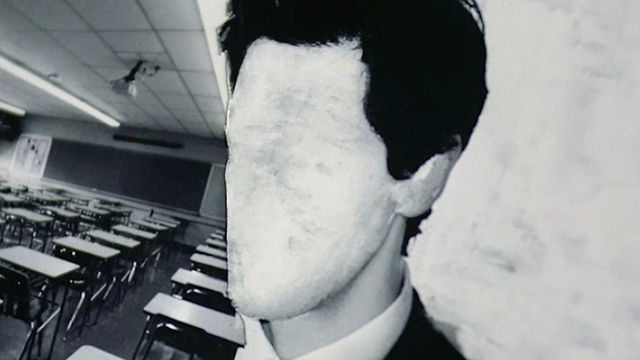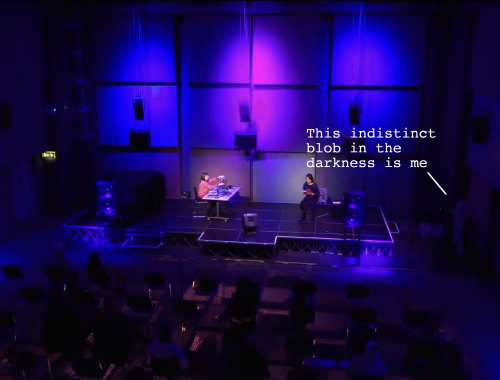
The Equity Of Detachment
A teacher who establishes rapport with the taught, becomes one with them, learns more from them than he teaches them.
Mahamtma Gandhi
Over the past 6 months of placement, in which I am experiencing the role of being a teacher for a full academic year in the capacity of an HND Music class, I have experienced various challenges; but the one I’d most like to talk about is what I’m coining as, ‘The Equity Of Detachment’. By this I mean the dichotomy of professionalism vs rapport, something I believe to be an inherent part of any student’s opportunity for success. Throughout my own educational journey I have experienced teachers that fall too heavily on either end of this spectrum I have put to you, the reader, and have found each one begets it’s own problems. Now through my experience of being on the other side of the desk, I see just how important and difficult of an outlook it is, and one I feel I will spend my whole career refining; if I am to pursue this career.

What?
In embarking on my placement I found it very easy to develop a rapport with my students, primarily due to my age and my employment being of an informal capacity. This has had it’s benefits, in that students have been more open and willing to communicate with me as to any problems they may be experiencing with their work or in fact with what parts of their work they are most proud of. This would in turn give me clear direction on where to focus with each individual student’s development on a personal level.
Another way I was able to quickly and efficiently build rapport with my students was in telling them of my own experiences studying in the same college, this I believe made them quick to relate to me and therefore drop down barriers of unfamiliarity.
However, in basing this original experience completely through a front of rapport and casting strict professionalism aside, I found several problems. Whilst I feel this approach was most appropriate in this venture due to my capacity being one of academic study rather than occupation, I learned that there is actually a very careful balance to be struck between the two which I have gone on to research, to prepare myself fully for future endeavours.
So What?
The reason why being seen in a purely rapport based light is a problem is that students begin to see you as a friend rather than as an authoritarian figure to be respected. I have seen first hand how this leads to liberties being taken in primarily these areas;
- Attendance
- Punctuality
- Timely Submissions
- Attitude To Learning
It is therefore clear that in so adopting this approach which at first glance seems to be the most kind to the student, is actually incredibly damaging to the student’s prospects and academic growth. This is not to say that the answer is one of strict professionalism as in so doing you face separate problems;
- Lack Of Communication
- Reduction In Personal Development
- Un-inspirational
If you are seen in an authoritarian light your students will be unwilling to open up to you on problems they are experiencing with work. This lack of communication is inherently damaging to the students development in an academic and pastoral sense.
This illustrates the challenge that I am currently experiencing within my placement and one that I will no doubt struggle with for the rest of my professional career, if I am to consider this as an occupation.
Now What?
I have undergone extensive research into this topic to prepare myself for the working world as well as to develop my skills in education. A key and helpful document I have found is, ‘Maintaining Professional Relationships with Students Coaching Guide’ by Sanford Inspire. This document serves as a module outline for a course which I would be extremely interested in undertaking post graduation to further this line of study and become the best teacher I can be for the students.
Things I have already began to ruminate on from this document are, ‘Build Relationships, but maintain boundaries.’ This is definitely easier said than done, however simply keeping it as a conscious thought when conducting yourself in the capacity of a teacher has already been immeasurably helpful. The document also considers facets I hadn’t considered, like simply how keeping yourself well groomed and dressed will immediately assert a level of professionalism but not at the expense of rapport. ‘Part of being a teacher is dressing, communicating, and acting professionally at all times.’
A final piece of advice this document brought up is that you as a professional are still able to seek professional help. For a young impressionable guppy in a huge pond this advice is incredibly impactful. As I am still surrounded by teachers every day, I have never considered the fact that they all seek help when needed when faced with a circumstance that falls outside their training; much like any other occupation. This is very relieving to me to know that these resources are out there, and the expectation of me being able to handle every situation independently, does not exist.
I will take these learnings as well as the knowledge that this is an aspect of the career I would spend my whole life refining, and work on applying them to the classroom. I feel once I am employed in this sector as an official rather than an academic volunteer, a balance will immediately be struck in the middle of this spectrum; and it is then up to me to balance the equity of detachment.
Bibliography
Modules.sanfordinspire.org. 2022. [online] Available at: <https://modules.sanfordinspire.org/wp-content/uploads/2017/07/Maintaining-Professional-Relationships-with-Students_Coaching_Guide.pdf>.
Smith, A., 2022. [online] Depts.ttu.edu. Available at: <https://www.depts.ttu.edu/tlpdc/Resources/Teaching_resources/TLPDC_teaching_resources/Documents/Building_Rapport_new.pdf>.
Weller, D., 2022. How to Build Rapport with Your Students. [online] Medium. Available at: <https://davidrweller.medium.com/how-to-build-rapport-with-your-students-fada54f3c0a4>.
You May Also Like

An Experience Never To Forget
1 April 2022
Teamwork Makes the Stream Work
27 March 2022

